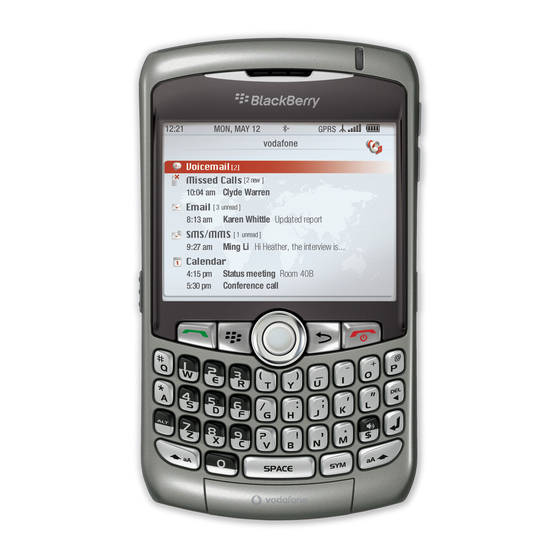Blackberry 8310 Curve AT&T Информация о продукте - Страница 21
Просмотреть онлайн или скачать pdf Информация о продукте для Сотовый телефон Blackberry 8310 Curve AT&T. Blackberry 8310 Curve AT&T 31 страница. Blackberry curve 8310: supplementary guide
Также для Blackberry 8310 Curve AT&T: Руководство по началу работы (46 страниц), Информация о безопасности и продукции (34 страниц), Руководство по началу работы (46 страниц), Советы и техника (4 страниц), Информационный лист (2 страниц), Краткое руководство по эксплуатации (17 страниц), Руководство по началу работы (50 страниц), Руководство по началу работы (10 страниц), Инструкции пользователя (2 страниц), Инструкции пользователя (2 страниц), Электрическая схема (13 страниц)

